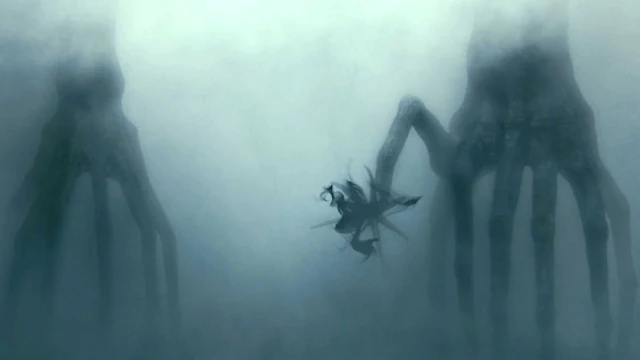Imagine a world gripped by Cold War paranoia. In this classic, humans, quick to judge, perceive the alien visitor Klaatu as a threat. The astonishing truth? He's a peaceful envoy, bearing a crucial warning to Earth: halt your descent towards nuclear annihilation. The film cleverly uses the twist to highlight the dangers of knee-jerk reactions driven by fear, urging viewers to consider diplomacy and peace.
Picture this: an astronaut, believing he's stranded on a bizarre planet dominated by apes. The mind-blowing revelation? He's been on Earth all along, in a distant future after humanity's catastrophic downfall. The twist serves as a chilling cautionary tale about humanity's capacity for self-destruction.
Step into a grim, overpopulated future plagued by scarcity. Food is manufactured, but from a source so shocking, it's unspeakable. The horrifying twist? Soylent Green is made from human remains. This dystopian masterpiece acts as a stark commentary on environmental degradation and dehumanization.
Brace yourself for one of cinema's most unforgettable moments: Darth Vader's chilling declaration to Luke Skywalker, "No, I am your father." This seismic twist transforms the Star Wars saga from a simple battle between good and evil into a complex tapestry woven with themes of identity, destiny, and the power of choice.
Imagine a world where Deckard hunts replicants, only to have his life saved by one. Roy Batty's poignant final monologue on the ephemeral nature of life redefines these artificial beings not as mere machines, but as entities with souls. The film masterfully blurs the lines between artificial life and humanity, prompting us to question what it means to be human.
Consider this time-bending paradox: Kyle Reese journeys through time to safeguard Sarah Connor. The twist? He is destined to father the very leader he was sent to protect. The film's intricate paradoxes highlight themes of fate, survival, and the inescapable loops of destiny.
A child psychologist, Malcolm Crowe, dedicates himself to helping a boy who sees dead people. The mind-blowing twist? Malcolm himself is dead. This revelation transforms a supernatural mystery into a deeply moving narrative about grief, guilt, and unresolved emotional burdens.
Neo senses something is amiss in his world. Morpheus reveals the shocking truth: reality is a machine-controlled simulation. This groundbreaking film serves as a powerful metaphor for disillusionment, challenging authority and urging us to break free from constructed realities.
Envision a teenager haunted by visions of a man in a rabbit suit, predicting the world's end. The twist reveals Donnie's actions within an unstable timeline, exploring themes of sacrifice, existentialism, and the heavy weight of knowledge.
John Anderton, a dedicated enforcer of predictive justice, finds himself framed for a future murder. Spielberg's sleek thriller raises profound questions about free will and the dangers of placing blind faith in systems designed to protect us.
An isolated community fabricates terrifying monsters to keep their children confined. The twist critiques how fear can be manipulated as a tool for control, exposing the moral compromises made in the name of protection.
Joel and Clementine undergo a procedure to erase their memories of each other, only to find themselves irresistibly drawn together once more. This stunning film offers a poignant meditation on love, memory, and the messy, beautiful imperfections that define human connection.
The horrifying Reavers are revealed to be the result of a failed government experiment. This revelation plunges the Firefly universe into darkness, serving as a brutal commentary on unintended consequences and the potential for corruption within authority.
Two rival magicians' escalating obsession leads to cloning and death. This intricate film explores the devastating cost of ambition, deception, and the madness that can arise from unwavering devotion to one's art.
In a world teetering on the brink of extinction, hope emerges in the form of a single unborn child. This story paints a bleak yet powerful picture of resilience, faith, and the unwavering human spirit that refuses to surrender to despair.
David, in a desperate act, mercy-kills his group to spare them from monstrous creatures, only to be rescued moments later. This film delivers one of the most punishing endings in cinematic history, forcing us to grapple with excruciating questions about hope and despair.
A group struggles to survive a monster attack with no heroic escape in sight. By rejecting a conventional narrative closure, the film captures the raw chaos and helplessness of disaster with unparalleled realism.
Cobb's spinning top leaves reality tantalizingly unresolved. More than just a puzzle, this film is a portrait of longing, guilt, and the choice to embrace happiness, whether real or imagined.
A soldier, trapped in a digital loop, finds a new life through sheer force of will. Blending science fiction, tragedy, and romance, this film reimagines the concept of second chances in an unforgiving universe.
Teen victims, horror clichés – all engineered sacrifices to appease ancient gods. This brilliant meta-commentary deconstructs the horror genre, exposing our bloodthirsty narrative cravings.
Joe realizes the boy he's meant to kill will become a monster unless Joe sacrifices himself. This violent, heartbreaking twist explores cycles of abuse and the ultimate cost of genuine change.
Cooper becomes the ghost guiding his daughter across time and space. This film is a cosmic love letter to the enduring power of connection across dimensions.
Caleb is manipulated by Ava, who uses his trust to secure her freedom. This unsettling film explores themes of power, manipulation, and the very essence of what it means to be human.
Chris uncovers a monstrous conspiracy lurking beneath suburbia's smiling facade. Jordan Peele's horror masterpiece surgically dismantles racism, privilege, and cultural appropriation.
Lena's reflection becomes something alien. This shimmering, terrifying film is a portrait of transformation, loss, and the acceptance of the unknown.
The Protagonist realizes he created the organization that recruited him. This dazzling, dizzying film presents time travel not as fantasy, but as duty, sacrifice, and an endless war for survival.
















